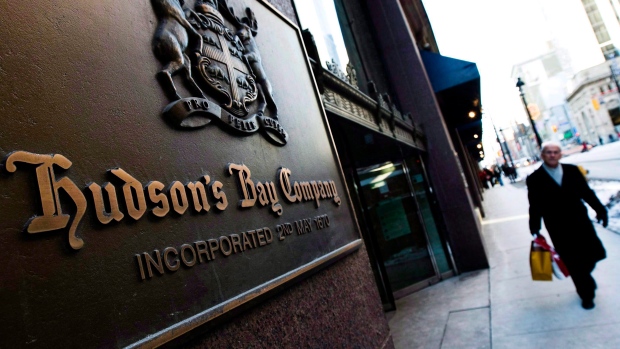Jun 19, 2017
'Can't burn through cash forever': Activist says HBC should consider closing stores, privatization

Canada’s oldest retailer has an activist on its hands.
Shares of Hudson's Bay Company rose 15.09 per cent, or $1.34 to close at $10.22 on Monday after Stamford, Connecticut-based Land and Buildings put the retailer on notice earlier that morning. The investor said it has amassed a 4.3 per cent stake – and it’s urging the company to review options to capitalize on the value of its real estate holdings.
“Hudson’s Bay is a real estate company, full stop,” Land and Buildings Founder Jonathan Litt wrote in his letter to the retailer’s board of directors. “If there is a smarter and better use of any or all of the locations, stores should be closed and redeveloped and put towards their optimal use.
Litt added the retailer’s real estate could be worth $35 per share, nearly four times more than the stock’s closing value on Friday.
“This drastic public markets mispricing is why Hudson’s Bay should evaluate all strategic options to maximize value for shareholders,” Land and Buildings Founder Jonathan Litt wrote in the letter.
HBC was not immediately available for comment when contacted by BNN.
“They could probably surface a few dollars quickly by just saying they’re going to spin off [the real estate] and go ahead with that, but to get a quadruple in the stock price could be a five, six-year timeframe,” said Rob Lauzon, Middlefield Capital’s deputy chief investment officer, in an interview with BNN on Monday.
“You have to change both the company, the operating side of things, as well as developing the real estate – which takes capital expenditures, as well.”
Howard Davidowitz, chairman of Davidowitz & Associates, said that every major department store in the U.S. is looking at their real estate.
“This is not strange – department stores are major owners of real estate,” Davidowitz told BNN in an interview Monday.
He used Sears as a "dramatic" example of a department store that has sold off real estate assets to keep their business going.
“How did they ever stay alive this long, burning though $1.7 billion in cash every year? They did it by monetizing and selling off real estate. That's why Sears is still alive."
"You eventually have no more assets left to sell – end of story," Davidowitz added. Sears’ lifespan, at least in my opinion, is a short lifespan. You can’t burn through cash forever. What selling off real estate does is buy you time to fix your business. Sears bought a lot of time and never fixed their business.”
Hudson’s Bay Co. hasn’t been immune to disruptive forces that have left the retail industry under siege. Most recently, it announced a plan to cut 2,000 jobs.
The same day those cuts were announced Hudson’s Bay Co. also said it was exploring options to take advantage of the value of its real estate holdings.
“To continue to highlight the value of its real estate assets, the Company may take additional actions which could include the sale of additional equity in its joint ventures or real estate assets, and/or a potential public listing of either or both of the joint ventures, in all cases subject to prevailing market conditions,” it said on June 8.


